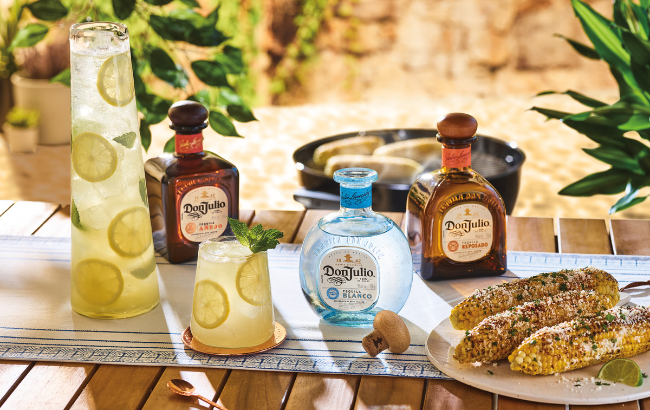Diageo faces lawsuit over ‘100% agave’ claim
By Nicola CarruthersA class action lawsuit has been filed against Diageo North America alleging the company has falsely marketed its Tequila brands as ‘100% agave’.

Consumers Avi Pusateri and Chaim Mishulovin, and Japanese-inspired restaurant Sushi Tokyo, filed the class action lawsuit against Diageo North America in the US District Court of the Eastern District of New York.
Pusateri is a resident of New York who owns and operates the Jazz Age Cocktails mixology group. Mishulovin is a resident of New Jersey.
All three plaintiffs have purchased bottles of Diageo-owned Tequilas including Casamigos and Don Julio. They claim they paid ‘super-premium prices’ but did not receive a premium product nor 100% Blue Weber agave Tequila.
The lawsuit claims that Diageo has falsely marketed its Tequila brands and is selling adulterated Tequila to consumers. It also noted an investigation of Casamigos and Don Julio allegedly showed “they consist of significant concentrations of cane or other types of alcohol rather than pure Tequila”.
It added that if the plaintiffs had been aware of the ‘truth’ behind the products’ ingredients, they would not have purchased them or would have paid less.
They argue that Don Julio and Casamigos do not meet regulatory requirements in the US or Mexico to be called ‘100% agave’.
As such, the lawsuit seeks class action status for purchasers in New York and New Jersey, damages of more than US$5 million and an injunction to prohibit false advertising by Diageo.
The lawsuit noted that Diageo labels every bottle of Casamigos as ‘Tequila 100% Agave Azul’ while Don Julio bottles are labelled with ‘100% de Agave’.
George Clooney-founded Casamigos was the world’s fourth-biggest-selling Tequila in 2023 with nine-litre case sales of three million, while Don Julio was the second largest at 3.4m cases, following Jose Cuervo.
The Consejo Regulador del Tequila (CRT), the regulatory body for Tequila, oversees the Tequila NOM (Norma Oficial Mexicana), a four-digit number that is required to be classified as an official Tequila brand.
The NOM imposes strict documentation requirements to ensure that Tequila ‘has not been adulterated in the manufacturing stages of its production’.
The lawsuit cited ‘multiple sources’ that indicate there is ‘significant adulteration of Tequila’ exported from Mexico, and pointed to a report by Mezcalistas where numerous agave farmers protested against the lack of regulations in the Tequila industry.
The lawsuit said: “There are reports that ‘CRT officials have been turning a profit by allowing some Tequila corporations to mix cane or corn alcohol into Tequila that’s then labelled as 100% agave’. This has been confirmed by sending ‘samples of Tequila for laboratory analysis’ and observing ‘trucks delivering cane alcohol to distilleries’.”
The plaintiffs also noted the Additive Free Alliance (AFA) showed it was possible to use Nuclear Magnetic Resonance laboratory testing to “confirm if Tequila has been adulterated with cane alcohol”.
Diageo responds
A Diageo spokesperson said: “These claims are meritless, and we plan to vigorously defend ourselves in court.”
Transparency in the Tequila industry and the use of additives have been a contentious issue in the sector.
Last month, Bacardi said it was in “constructive conversations” with the CRT to address the topic of additives transparently following a temporary ban on Patrón exports.
The CRT recently took legal action against the AFA, which had previously published a list of Tequila brands it deemed to be ‘additive-free’.
Related news
Diageo GB supports trade with 100+ new recruits
